I arrived home last night at 11:00pm after a 7 hour bus journey from Madrid, having been there for a few days to walk the city. So some disclaimers first – no idea what was achieved and certainly am aware that so much of what we (OK, ‘I’) do is for us even when we think we are doing this for ‘God’s kingdom’. I hope it was worthwhile and one day (maybe) will find out. Until then we seek to do whatever we think might be what we ‘should’ be doing in response to our discipleship.
Practically first. Schoolboy error (not the first one I have made) is to walk with shoes that are not fully broken in. I have two pairs of running shoes – one that is on the way out, but still good but covered in paint from when I painted the roof this year. I have another pair that I have been using to drive in and to go and get a few groceries – after a couple of hours I soon discovered they were not fully worn in, and over the following two days used over 200ml of vaseline to oil my way to the finish – more vaseline covering my feet than socks, methinks.
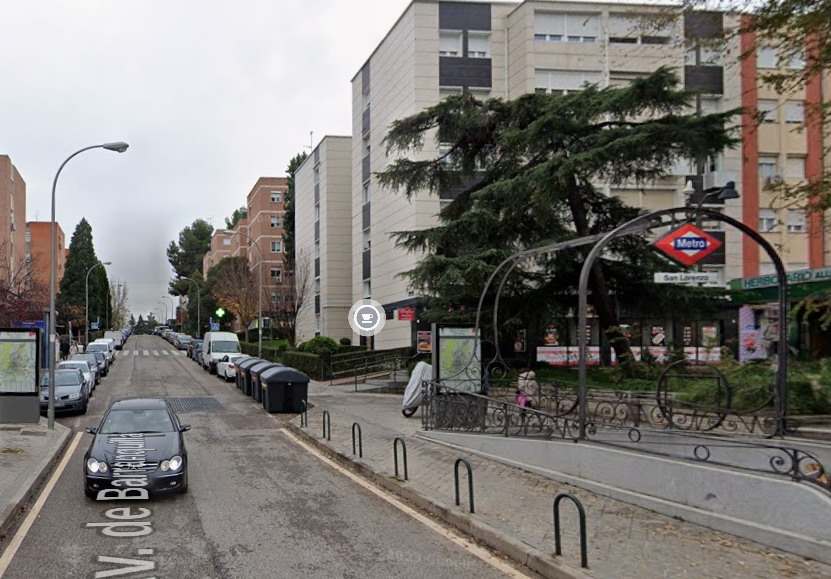
I chose to start and finish at San Lorenzo metro station. I have posted regarding the above mentioned gentleman before. 258, August 10th he came to the end of his life on this planet having been put to death at command of the emperor when his response to being commanded to bring the wealth of the church to the emperor was:
Here are the treasures of the church. You see, the church is truly rich, far richer than your emperor!
He presented those who were blind, physically disabled and impoverished. Not the response that was desired! But what a place to start – values. Any city, any civilisation, any society has to understand true values, and all values are measured by a truly human standard.
I will not document every step but pick up on a few aspects – basically I walked the city from the north east (San Lorenzo) south to finish the first day at Puerta de Alcala (near Retiro park); from there through Atocha station to the south and then turning north at Piramedes and Puerta de Toledo, past the royal palace to the university and then turning east back to San Lorenzo. The north of the city is wealthier, wider streets, bigger houses, people dressed with ‘better’ clothing, then the south (Lavapies for example) was in some contrast with for example right in front of me the police stopping their patrol car and jumping out to confront someone demanding their ID. Probably he was a little high, (un)like a much better dressed person in another part of the city who might be acceptably ‘high’ on having signed a very lucrative deal that day. Values!
What stood out to me was what I saw in the various gates. Try these photos:
End of first day: Puerta de Alcala… from the bullring to Alcala to the fountain of Cybele to the bank of Spain to parliament – draw a straight line, for those who give credence to something along the lines of ‘ley-lines’). Alcala was one of the original gates into the city.
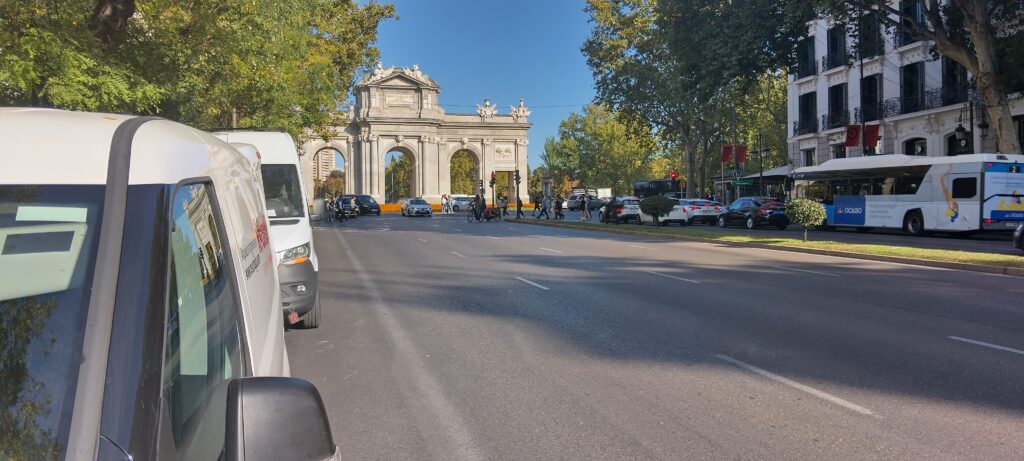
On the south side of the city there is an interesting twin obelisks that then give an entrance to the Puerta de Toledo. Obelisks are of Egyptian origin erected in honour of the sun god, with prisoners of war sacrificed in order to draw the power of the sun god.
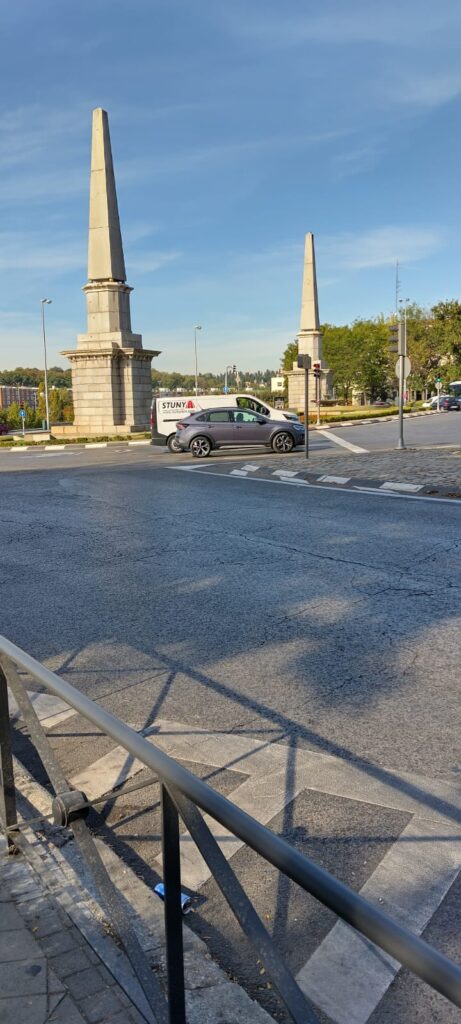
Standing between these two obelisks then pointing north and one would walk right through the Puerta de Toledo:

More ‘gates’… this one is quite spectacular with a conglomeration of arches and monuments – making quite a statement:
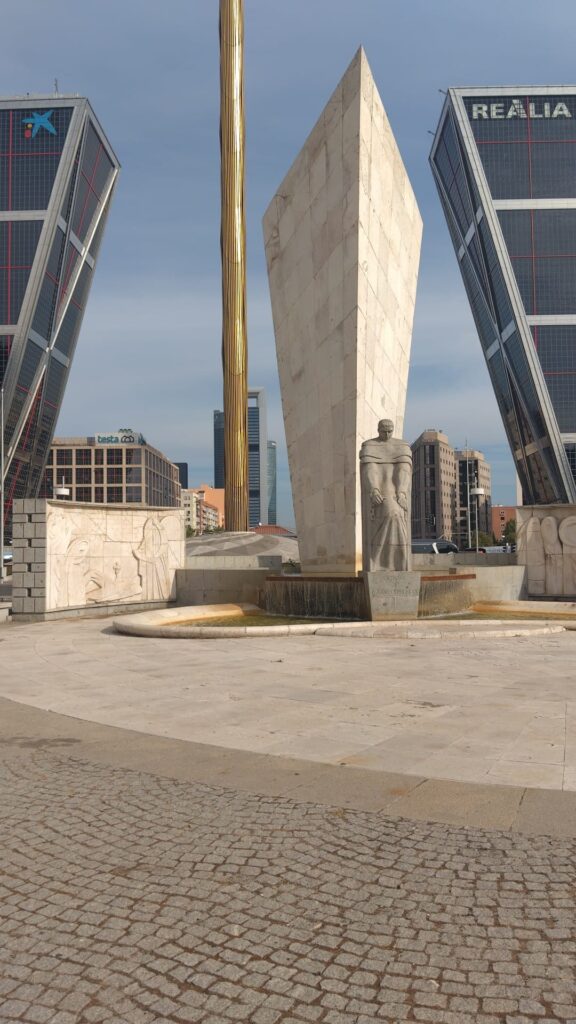
There were other gates too – and probably ones I missed. One marking the entrance to the bull ring and one ‘off the map’ to the north west in the ‘iron gate’ that unless I wanted to stand in the middle of the freeway I had no direct access to. (That would have been beyond my second ‘schoolboy error’.)
The gates are so often a place of contention and even with some initial tracking of alignments of the gates it seems there is some convergence on the parliament building – also with other aspects such as the obelisk at Plaza de Lealtad.
The major aspect of why I wanted to walk and pray the city was to follow up on what we sensed when we first moved to Madrid (and to complete before moving to Sicily) was that of seeking to hold the government and judiciary in to a wholesome mode of being and behaviour. In big langauge I wanted to make sure that over the next years the government and judiciary cannot ‘escape’!
I am sure there are those who can prayer walk and be effective, I am not claiming to be one of those, but after the Toledo gate I came to the royal palace, then the Temple of Debod (literally moved from Egypt to Spain) and it sits with an East/west alignment and directly outside it on the wall is a sculpture to a fallen soldier from the civil war – this being the area where the entrance was made into the city.
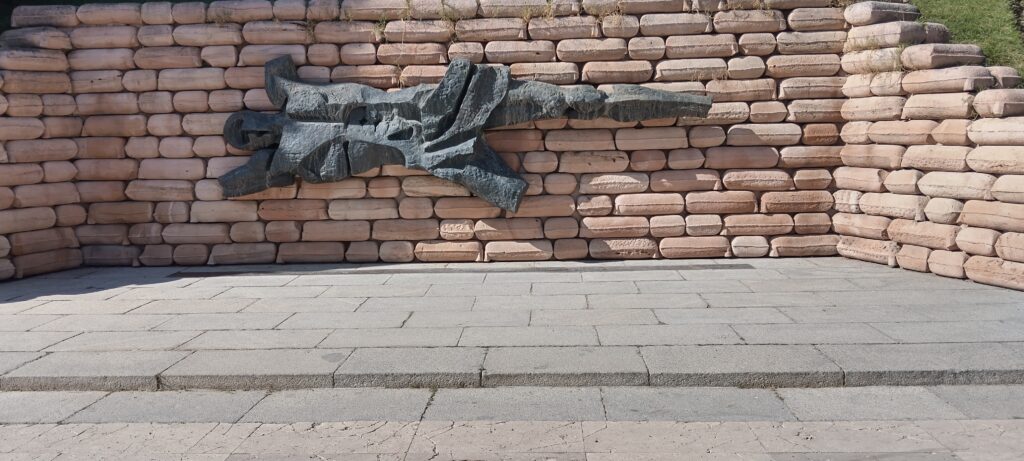
So much more I could add but having started the walk at San Lorenzo with the issue of values the final photo has to be of ‘homeless Jesus’ asleep on a bench outside the main Cathedral (where the rich and famous are interred, including Franco’s daughter – but NOT him, thank God).

So what was achieved? Something cos God is gracious and listens to prayers but of course a percentage of what we do ‘for God’ is more for us and our own little ideas. Here’s to many of our own little ideas combining to sow into the future where values are measured differently, measured by the stature of the incarnated One.

 Changes, changes, changes. Who can predict the future? Post Brexit referendum the jury is still out as to what that all means. Gibraltar the clearest ‘remain’ vote (could this be down to vested interest?!!) and yet one of the biggest financial contributions to the leave vote campaign came from there. How will a year-old party shape up in France? Across the pond what is happening?
Changes, changes, changes. Who can predict the future? Post Brexit referendum the jury is still out as to what that all means. Gibraltar the clearest ‘remain’ vote (could this be down to vested interest?!!) and yet one of the biggest financial contributions to the leave vote campaign came from there. How will a year-old party shape up in France? Across the pond what is happening?